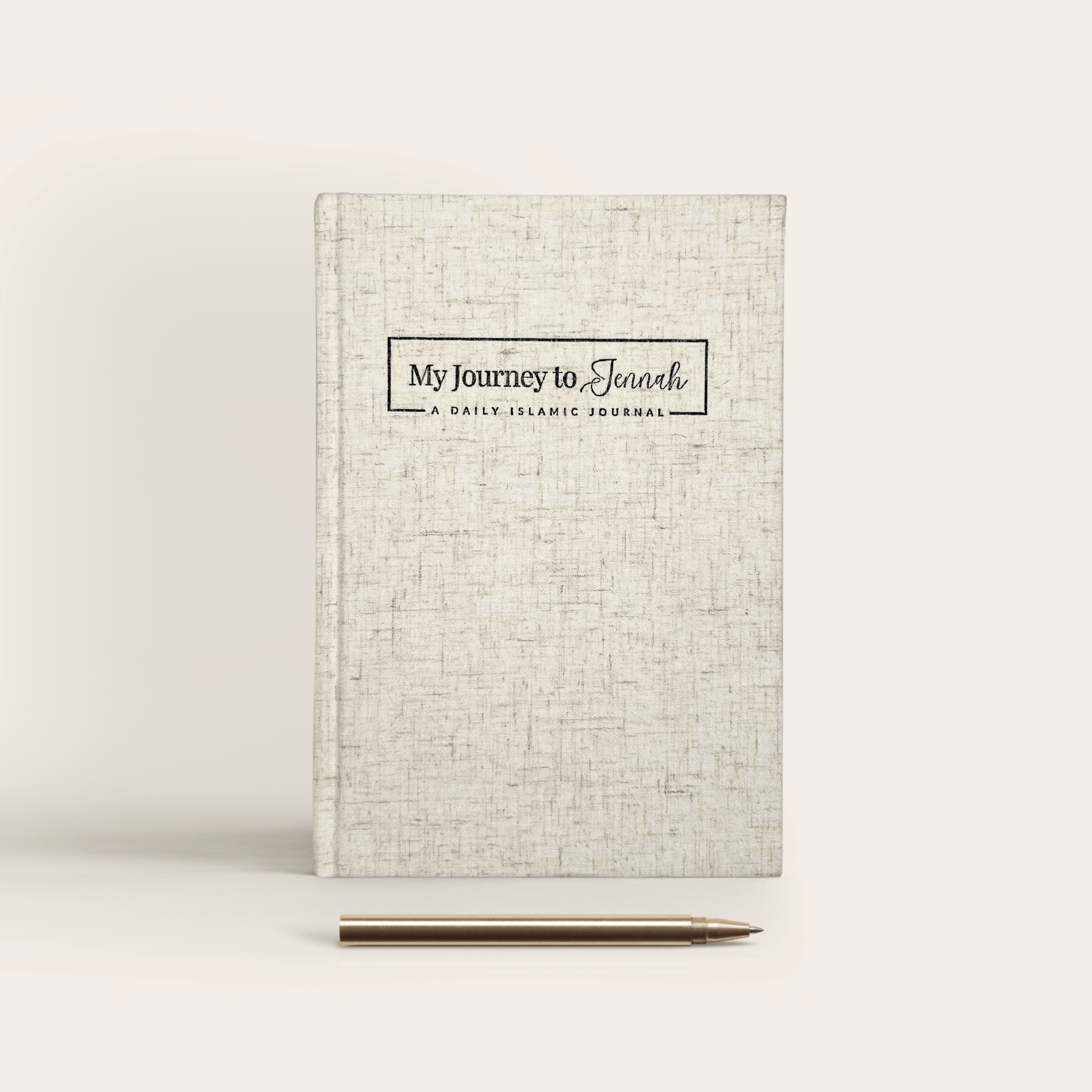How to Prioritize Allah in This Hectic Dunya..?
A beginners guide to daily reflection
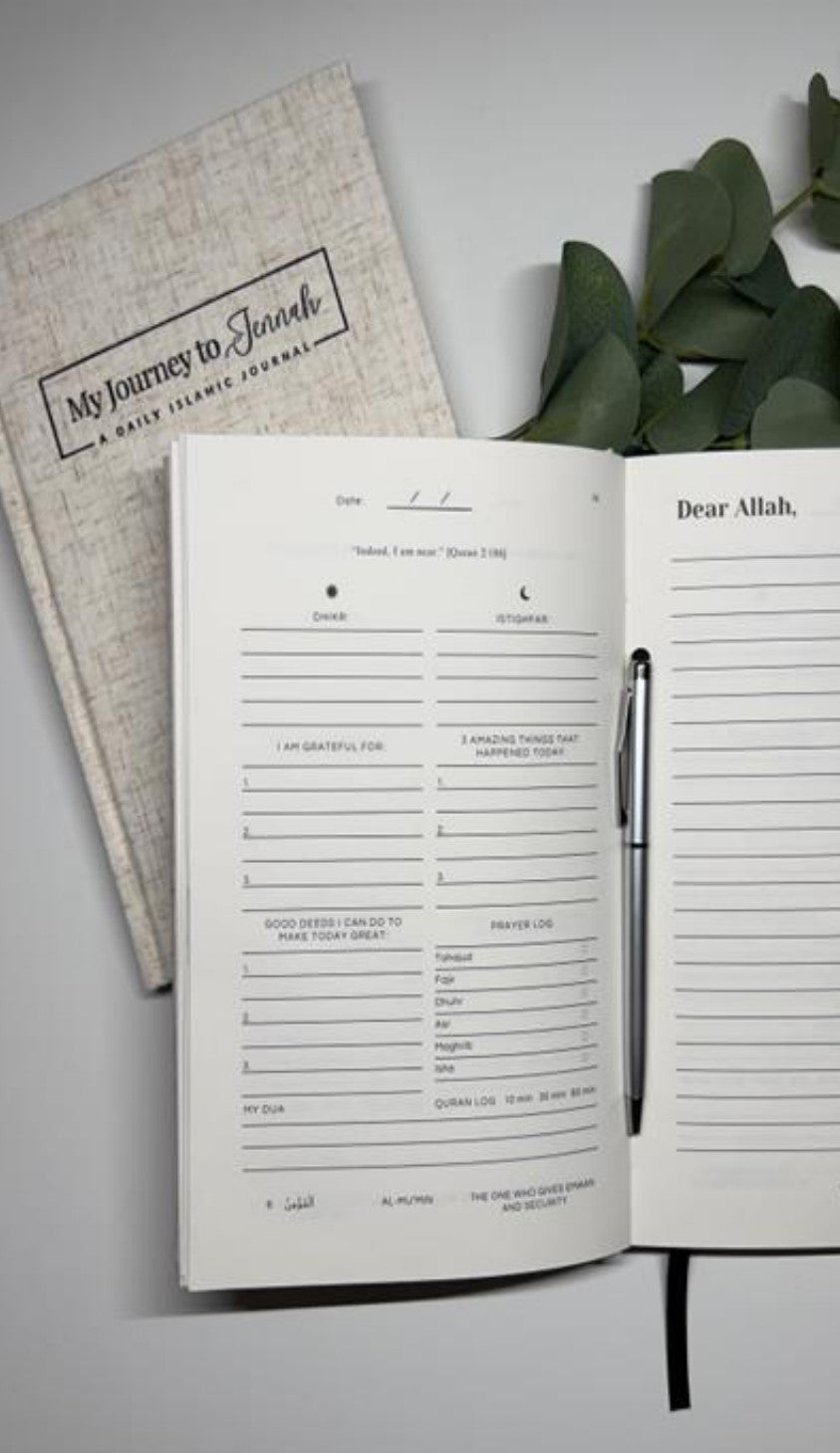
Allah describes himself as Al-Muta’ali - The Exalted, The Most High. This name means that not only is Allah exalted over all His creation, but that His greatness is beyond our imagination.
Allah is limitless. He is truly the source of all our resources. We often say it with our tongues but simply acknowledging it is not enough.
Allah says: “Do the people think they will be left to say, “We believe,” and they will not be tried?” [29:2]
To truly worship Allah in accordance with his beautiful names and recognize him as Al-Muta’ali we have to make Allah a priority in our daily lives.
Here’s what’s going on…
We often run from one task to the next, checking to-dos off the list, squeezing activities into every spare second of our day, and worship? Oh, that ends up becoming secondary or worse – forgotten.
We fit in a prayer or two if we have time. We only make dua when we are in need. We remember Allah only in the brief seconds that it takes us to scroll past an inspirational quote on Instagram.
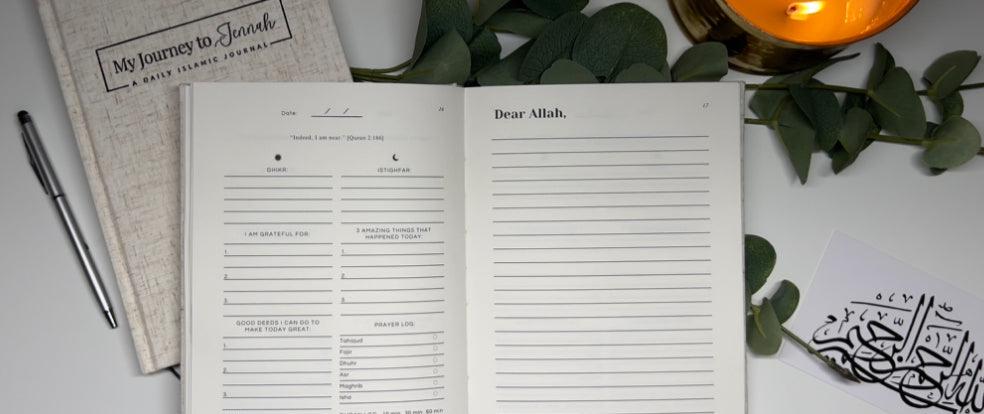
So, what’s the solution..?
How often do we worry about something without taking a minute to ask Allah to show us the way. We think of things or people who could help us out, but not Allah. The One who is the best of helpers and the source of everything in this life.
In moments of fear, remind yourself Allah has all the insight. He has all the power and is fully capable of easing your affairs. Next time you face a difficult task, take a couple of minutes to make dua before continuing or starting to work.
Ask Allah for his help: “And we have already created man, and we know what his soul whispers to him, and we are closer to him than [his] jugular vein.” [50:16]
Allah is closer to you than anyone else.
In times of joy and grief, we look to someone to talk to and share our thoughts, observations, experiences and emotions. The next time you feel this urge, take it as a reminder—a sign to turn to Allah first. Pour your heart out to Him before you reach for your phone to call a friend.
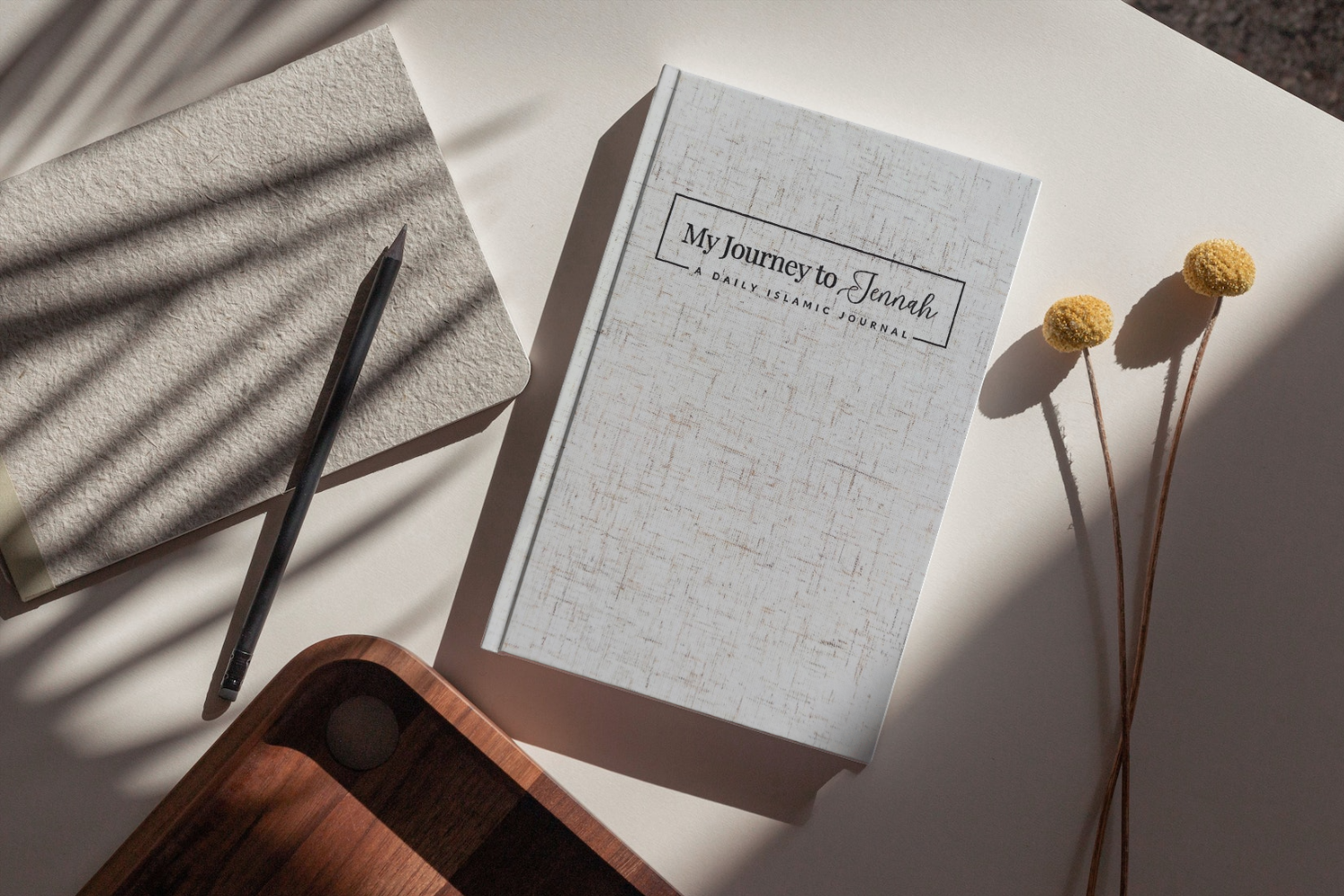
Writing can be a powerful way to connect with your inner thoughts and emotions. Research has shown that writing by hand engages the brain in unique ways, helping you process your emotions more deeply and communicate with greater clarity. By putting pen to paper, you give yourself the space to express what’s in your heart in a more authentic and meaningful way.
That’s why the ‘Dua and Dear Allah sections’ inside My journey to Jennah give you plenty of space to write out your duas and conversations with Allah.
There is also a dedicated section for every evening – so before you go to bed, you can ask yourself: How did I make Allah a priority today?
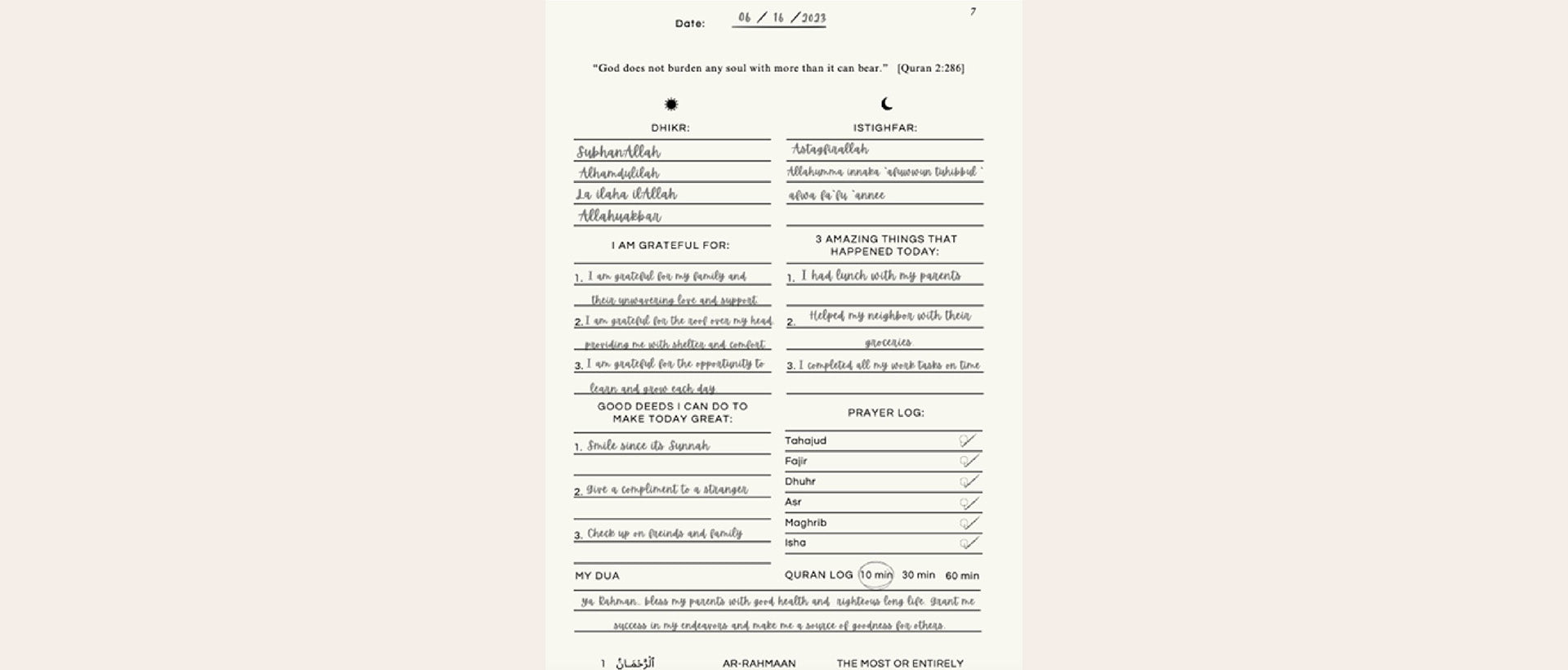
Consume your faith first
What’s the first thing you reach for when you wake up? For many, it’s their phone—scrolling through notifications and social media before their feet even touch the ground.
Imagine this instead: Before bed, place your Jennah Journal on top of your phone. This simple act transforms your morning routine. You’ll be trading mindless scrolling for something far more meaningful—starting your day by speaking to Allah. (This small shift changed our founder’s life, and she went from checking her phone to making dua every morning.)
You can make faith the first thing you engage with each day. Whether it’s framing your favorite Quranic verse, keeping a list of duas by your bedside, or journaling your thoughts, these small acts ensure that your day begins with the remembrance of Allah.
It’s the small changes in our environment that bring about the biggest transformations. When your surroundings are designed to remind you of Allah, they help guide you towards success—setting your intentions, actions, and goals with barakah.
That’s why the ‘Dua and Dear Allah sections’ inside My journey to Jennah give you plenty of space to write out your duas and conversations with Allah.
There is also a dedicated section for every evening – so before you go to bed, you can ask yourself: How did I make Allah a priority today?
My Journey to Jennah Journal Islamic Gratitude Journal
Share
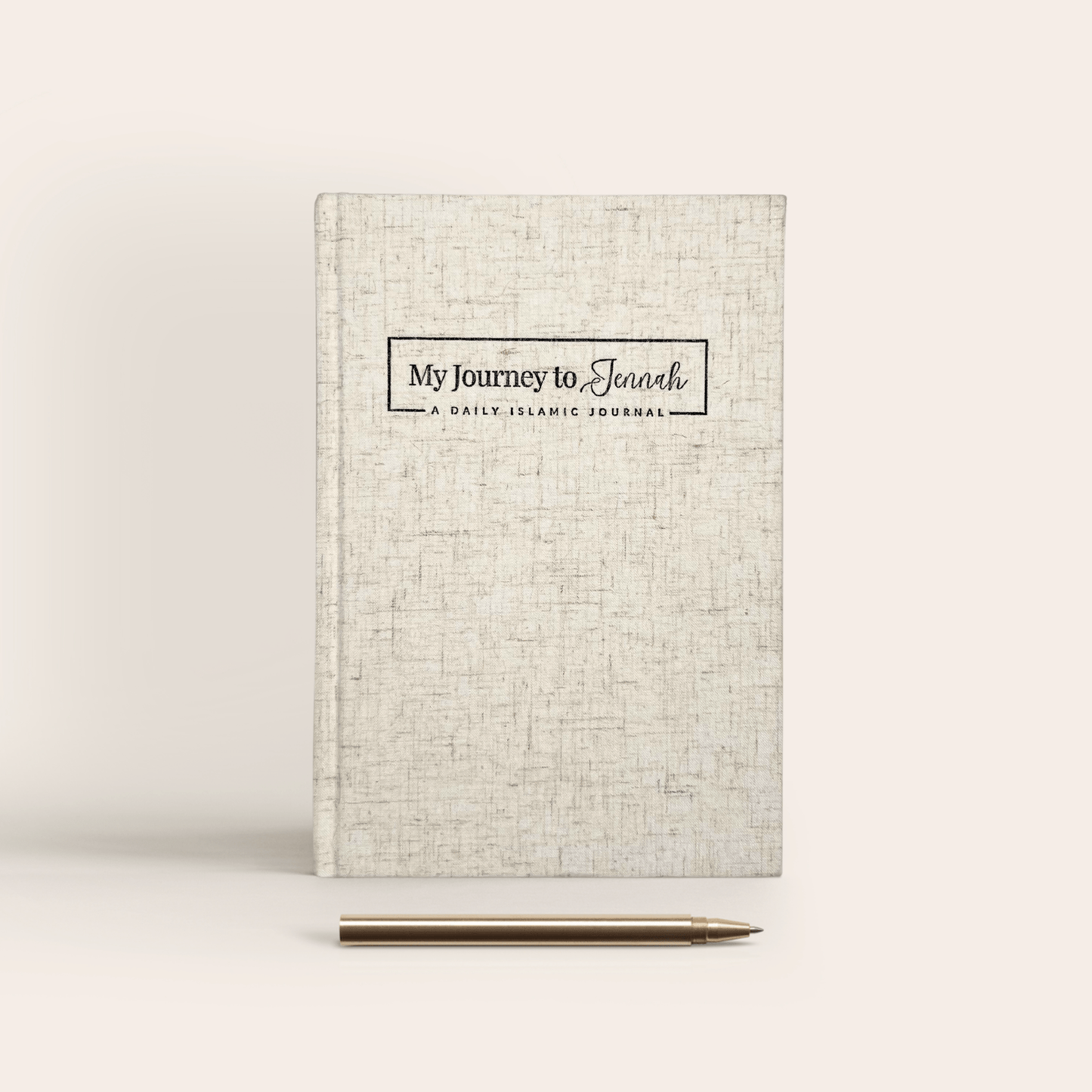
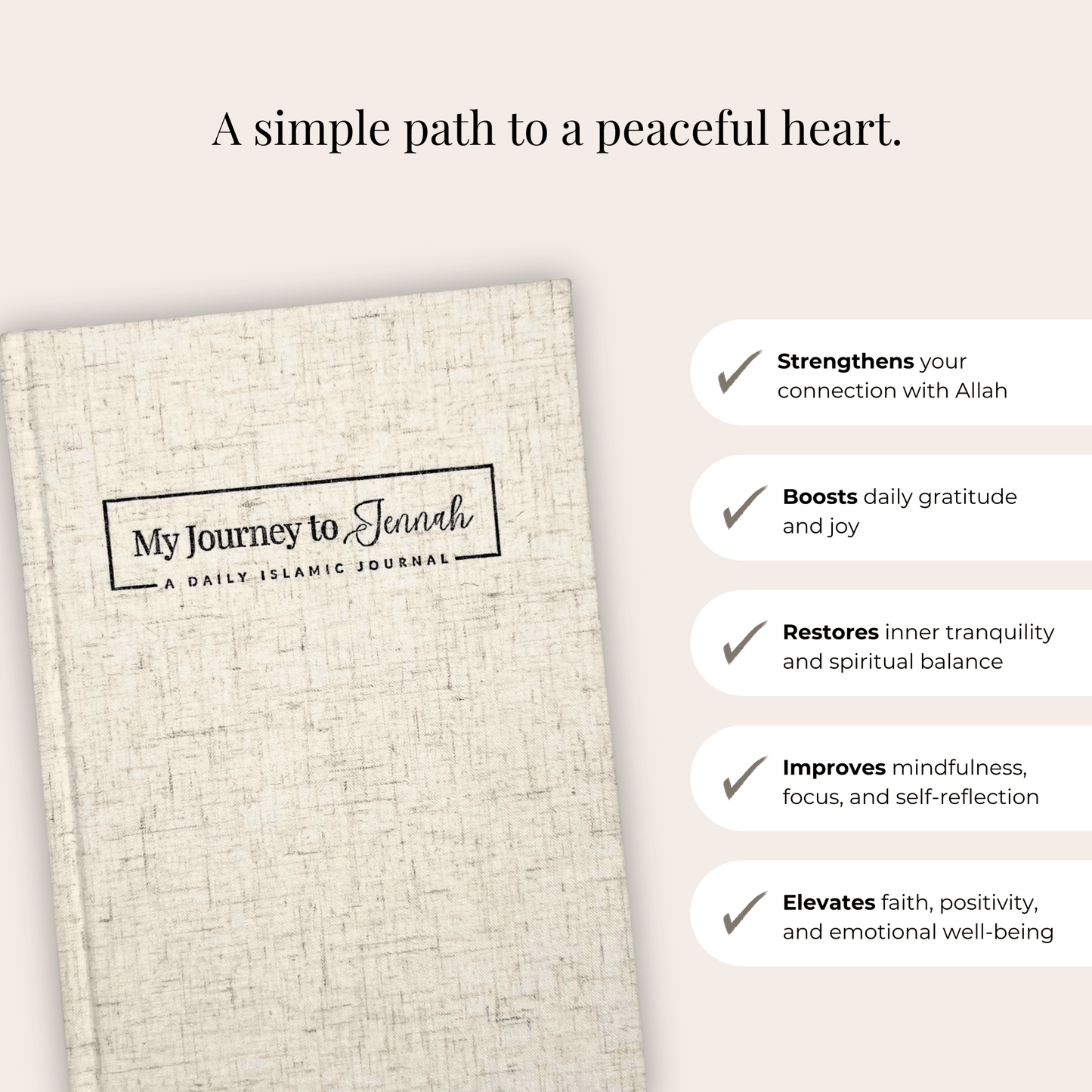
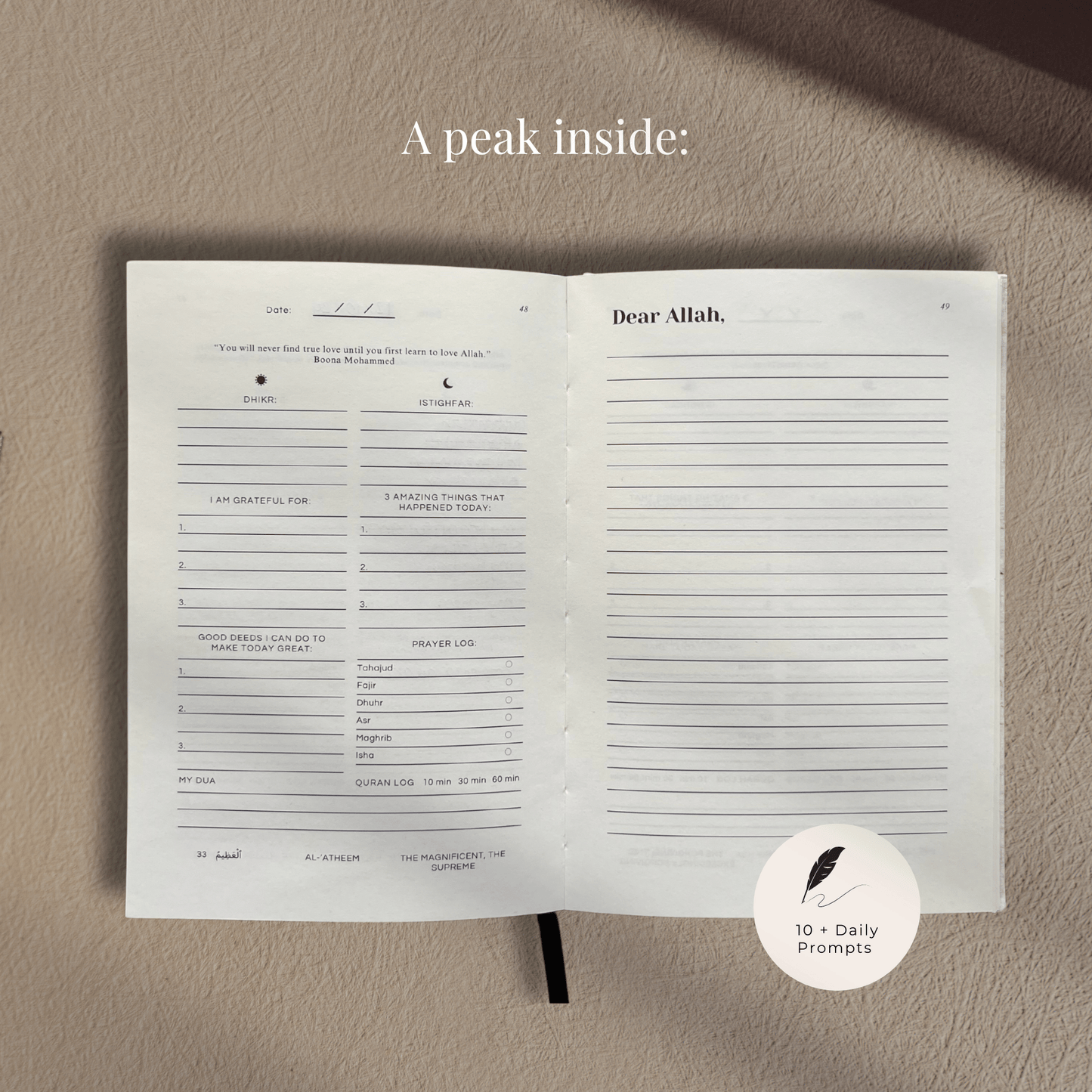
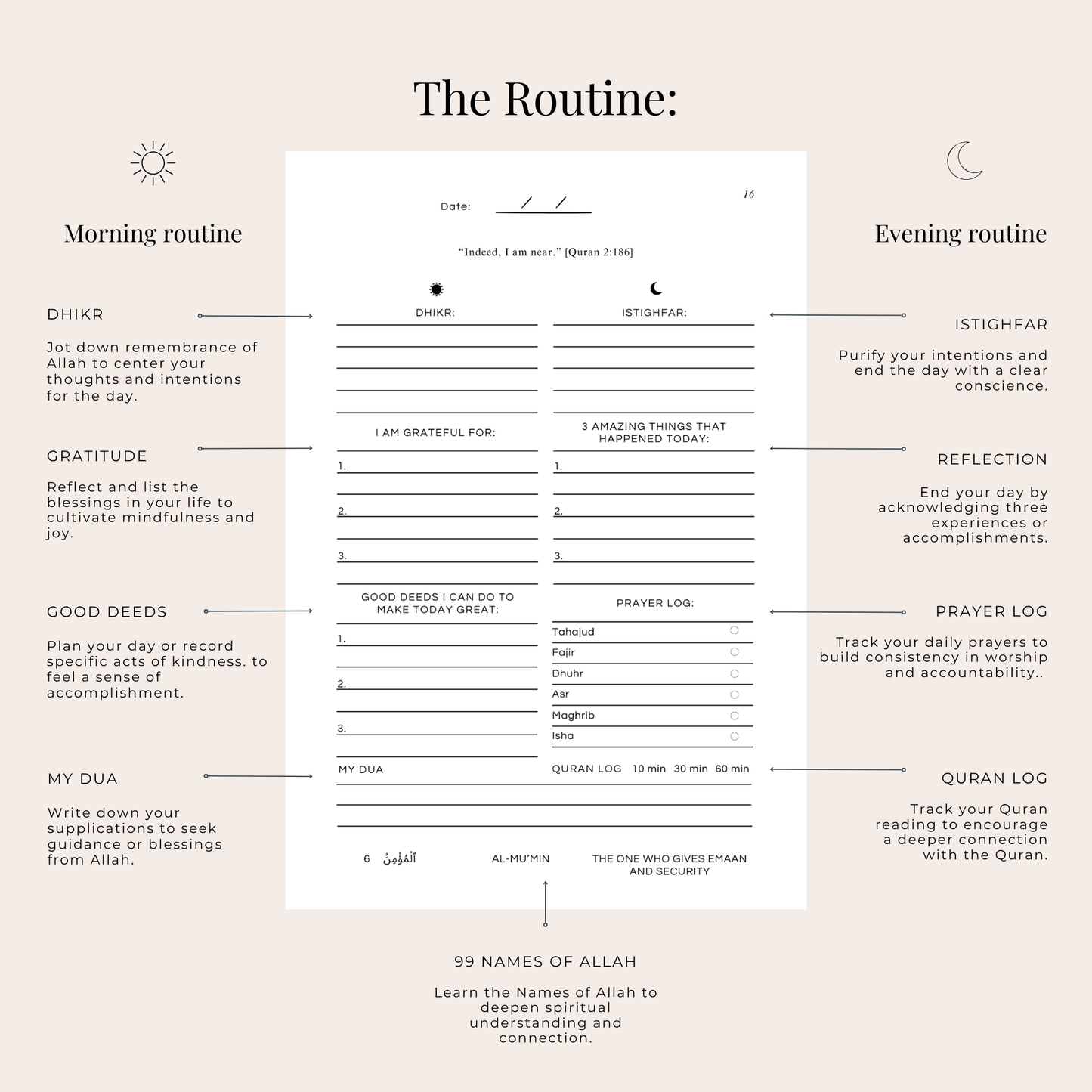
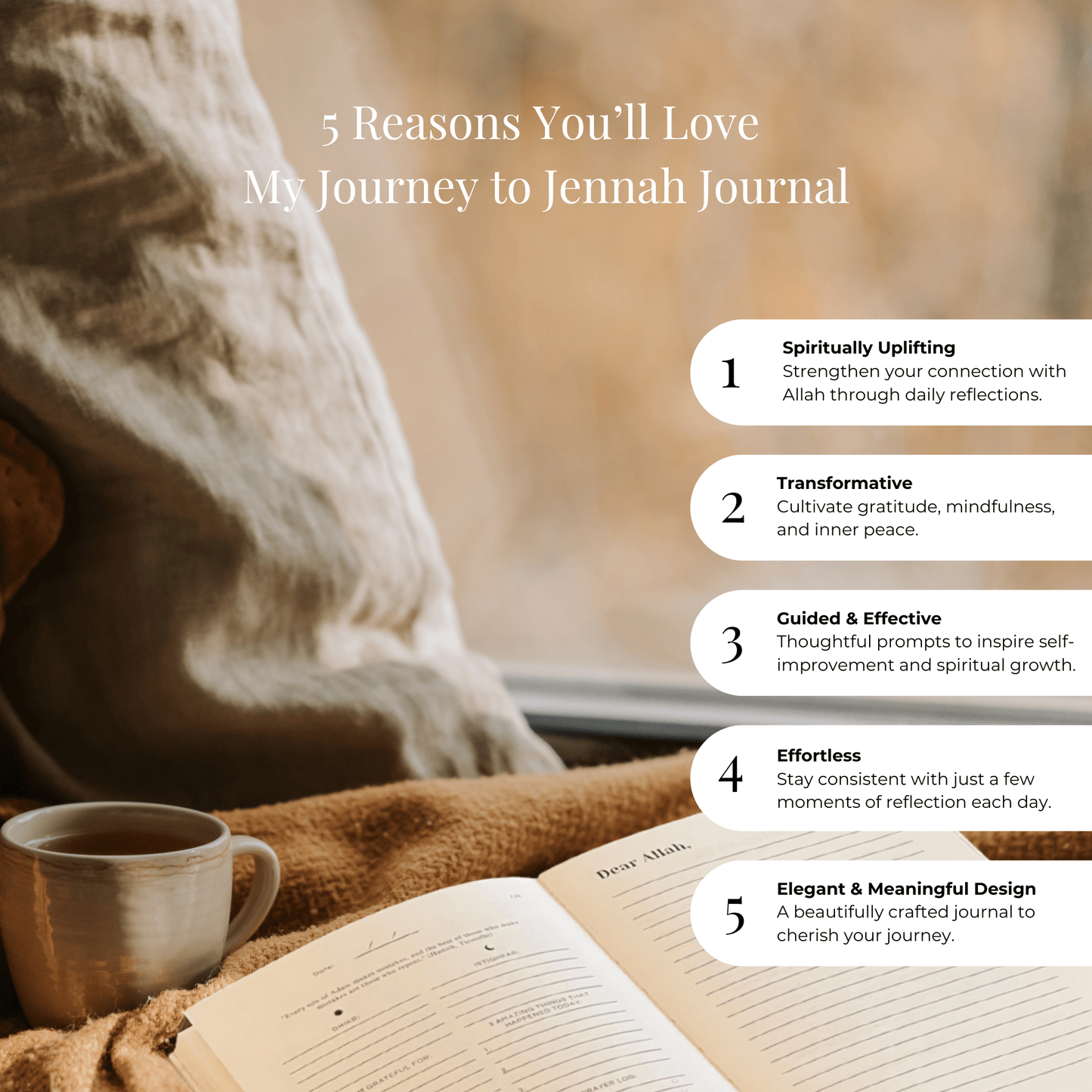
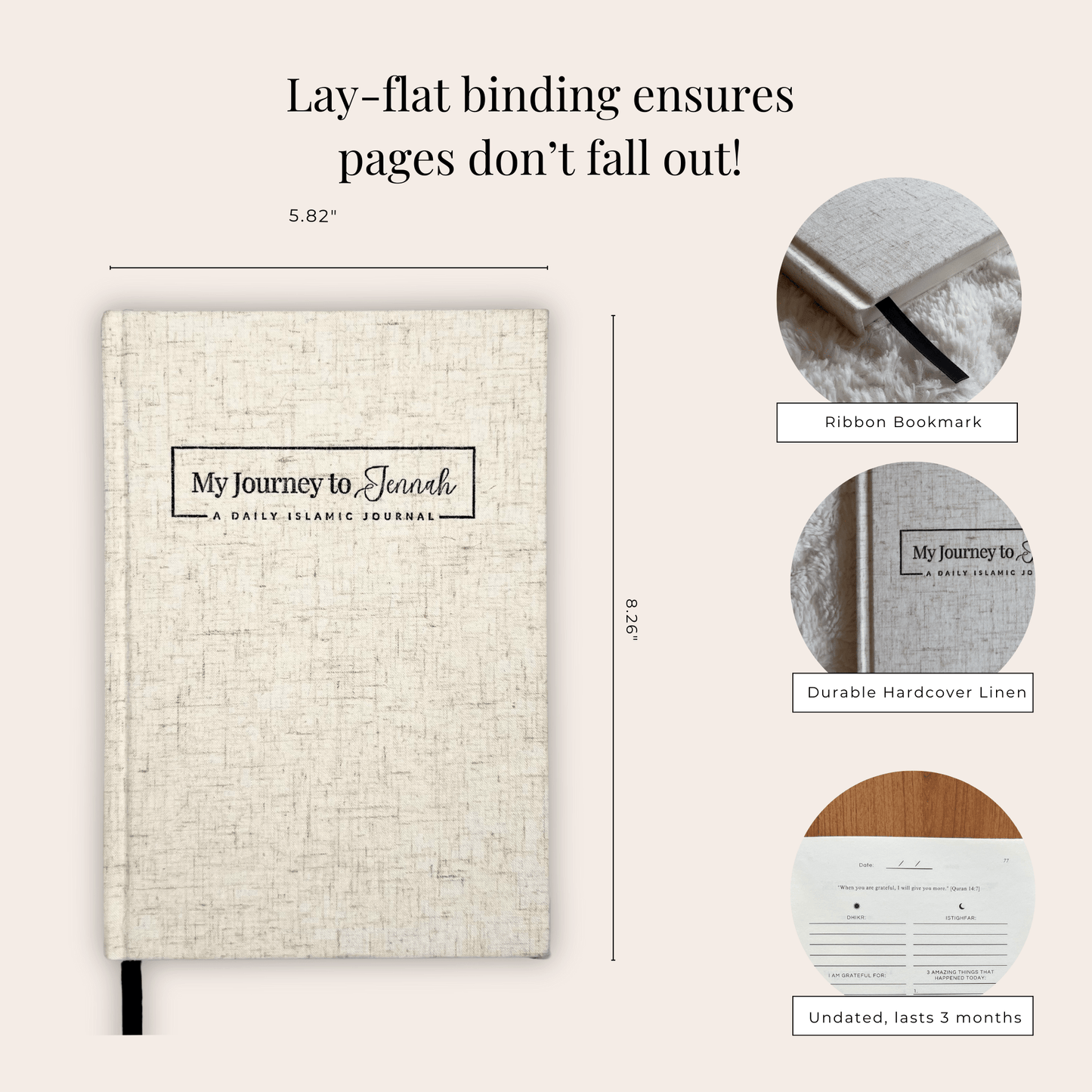
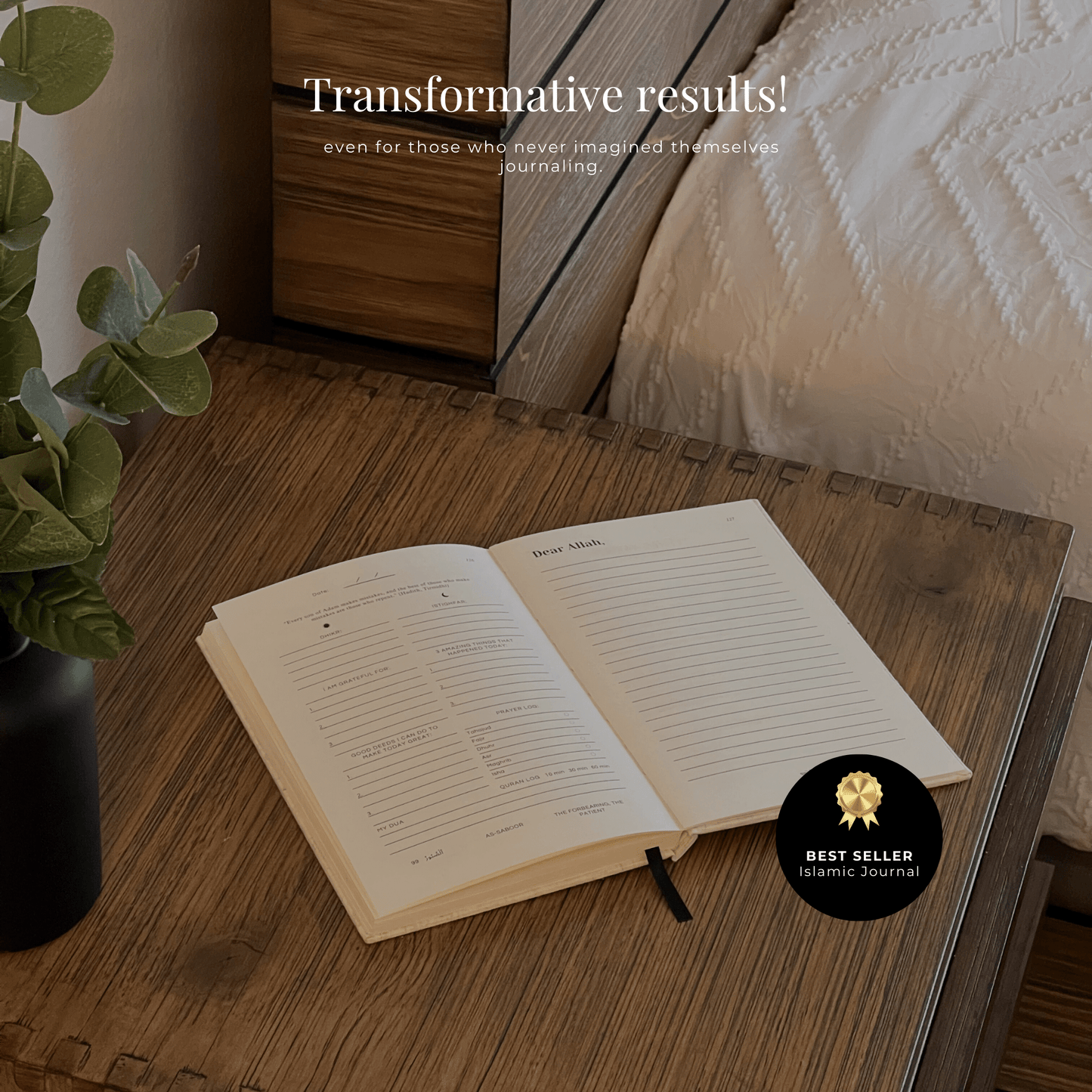
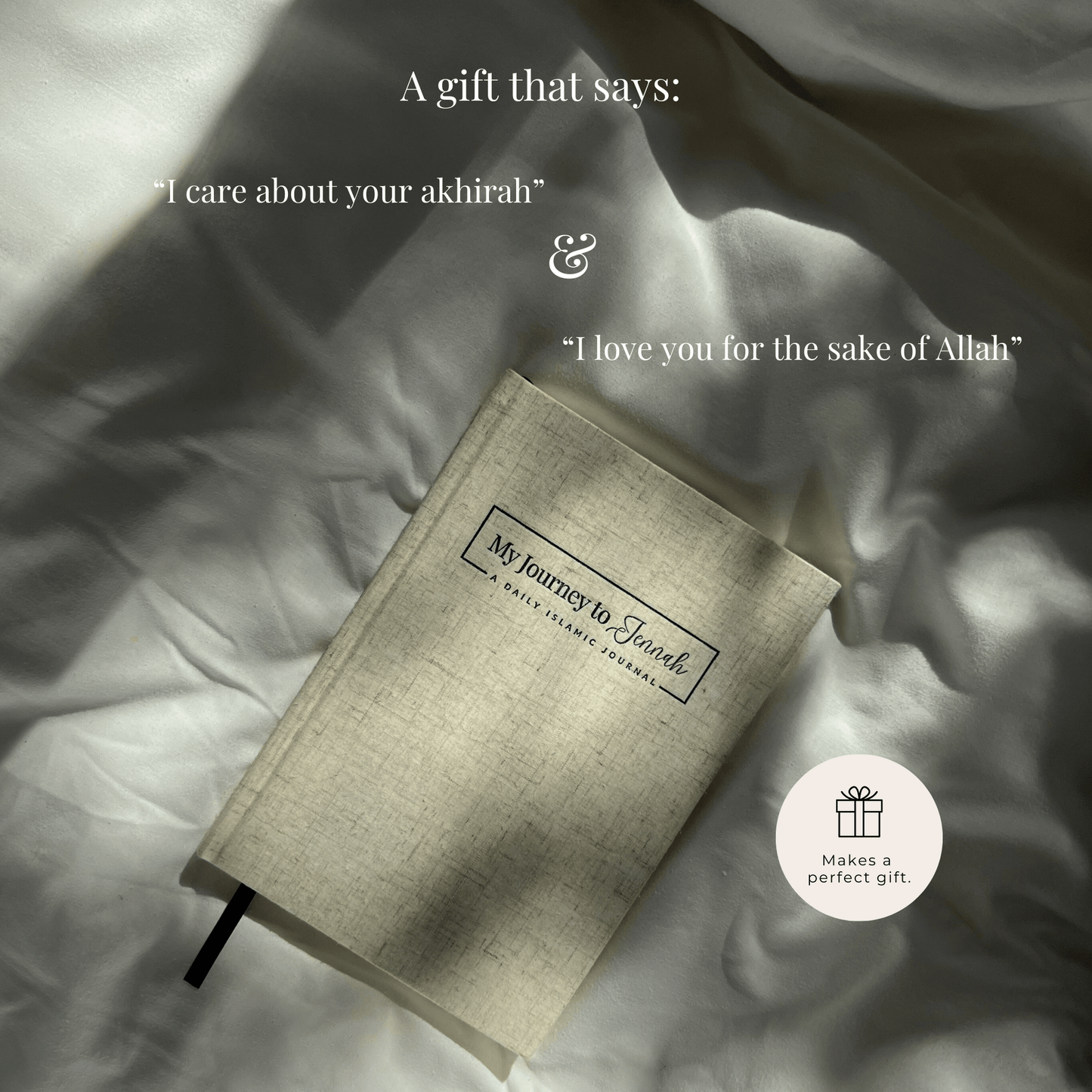
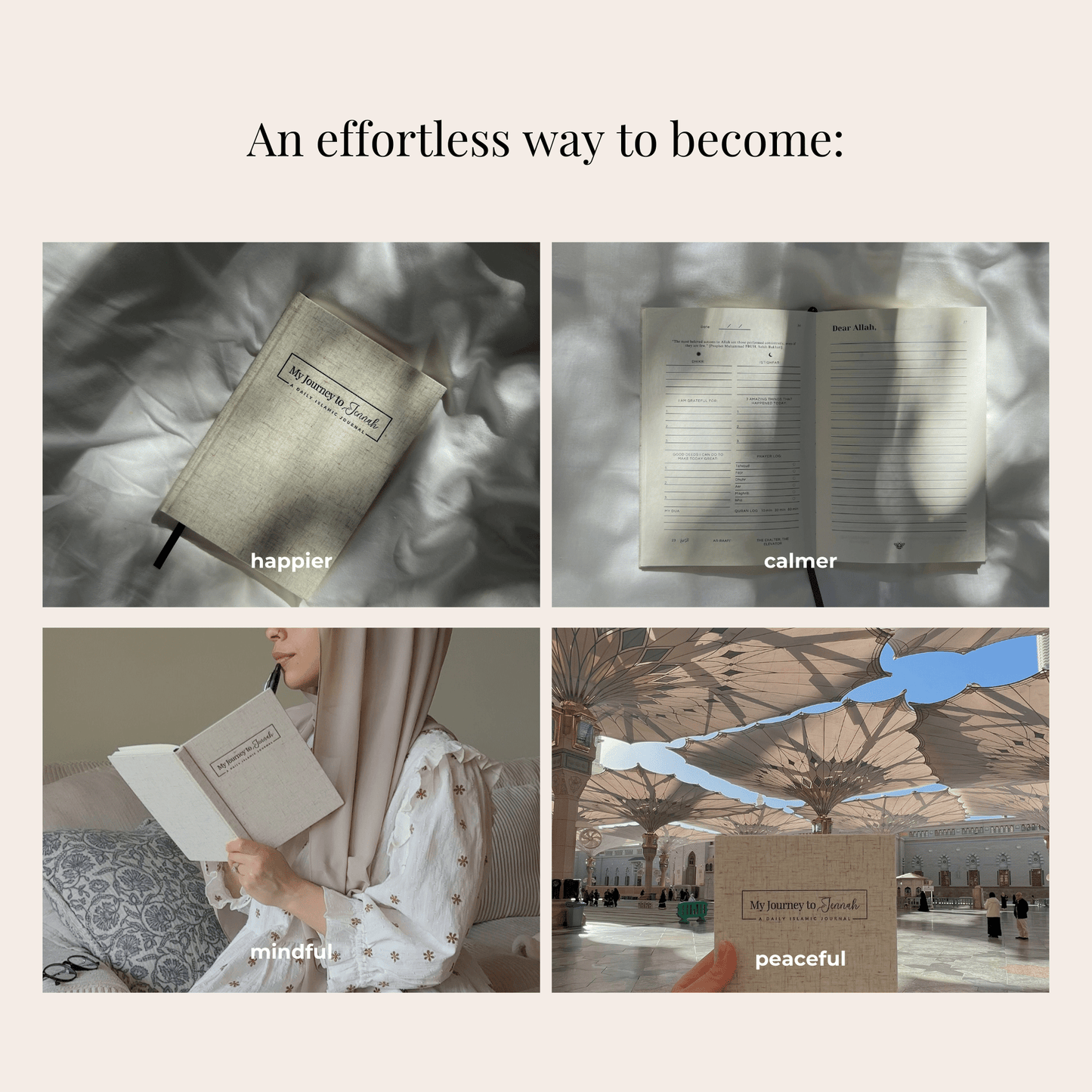
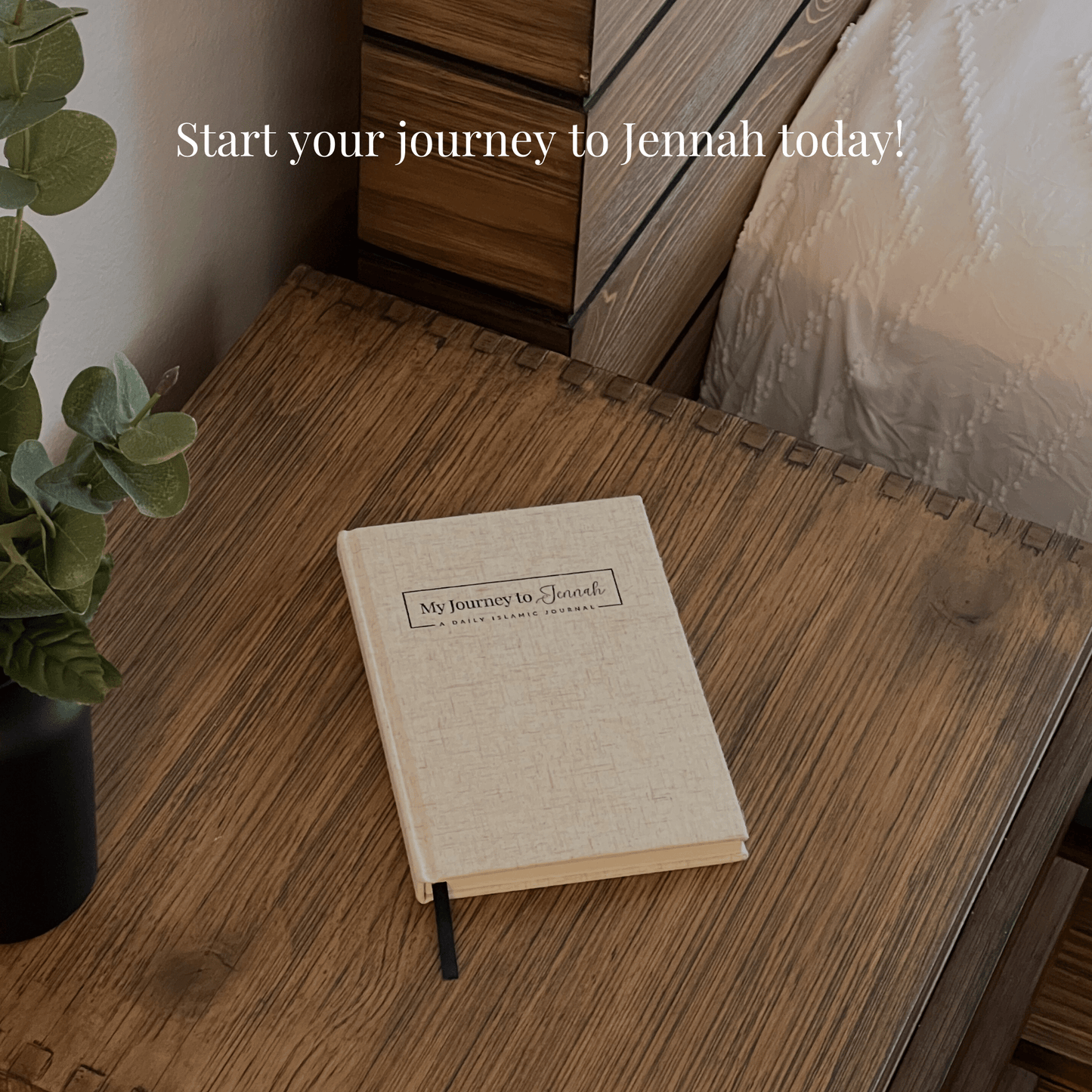
So why should you journal?
-

1. It’s a healthy way to organize your thoughts and feelings
Research revealed that people who got their thoughts and feelings onto paper were more able to handle traumas and emotional stress than those who didn’t. Why? Because the simple act of journaling gave them control over any unhelpful thoughts. Stopping them in their tracks before they have a chance to spiral. This habit reduces feelings of stress, anxiety an depression – contributing to a better night’s sleep.
-

2. It gets you thinking about what you’re grateful for
Islam emphasizes the importance of gratitude, and journaling gives you space to reflect on what you’re thankful for. Countless studies have shown the benefits of gratitude, including better sleep, increased joy, and reduced physical pain. The act of journaling gives you a reason to think about things that make you feel good, big or small. Your journal acts as a constant reminder of what you do have – ready to refer to in times you need it most.
-

3. You can check in quickly and boost your mood
It’s not always easy to figure out how you’re actually doing. Not when things are muddled up in your mind, anyway. By checking in, you can quickly identify how you’re feeling in as little as 5 minutes. Writing helps to separate that swirl of emotions inside your head to quickly make sense of what’s happening. Journaling helps you feel happier and more in control because it gives you a structured way to track your mood daily.
-

4. Boost your immune system and improve your physical health
Stress plays a major role in our lives, often leading to an increase in cortisol – a hormone that weakens the immune system. Journaling has been shown to lower cortisol levels, helping your body recover faster and fight off infections more effectively. It’s also a tool to combat early signs of burnout before they take hold. By using your Jennah Journal, you support both your emotional well-being and your physical health.

